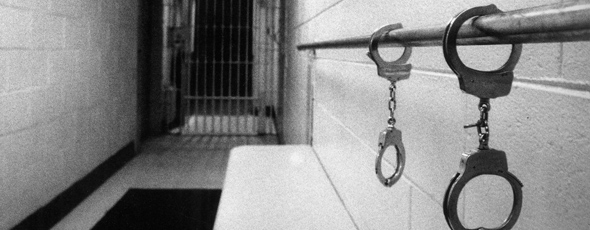
The cell door opened for slop out to discharge the piss bucket. Bang, bang and bang again. The sound of an unwieldy wooden scrubbing brush clubbing me in the head. Two much older lads decided that I was responsible for doing a “Borstal Whistle” during the night. This was one of my first mornings in prison, only just 16 years of age and finding myself on the ‘YP’ (Young Prisoner) wing of Her Majesty’s Prison, Hull. An adult gaol, previously classified a ‘Cat A’ top security prison. The fear of what else could happen in that prison cell, the trauma of the assault, the anxiety it created, have never left me. It moulded my morality as a dangerous and prolific offender for the next 6 years.
If we’re to persuade people to stop offending, do you think the memory I’ve shared with you is the sort of merciless incarceration experience likely to lead to change? It isn’t. Put simply: prison doesn’t work. Or maybe it does work, just not in the way we’re supposed to believe it’s meant to.
At the vulnerable age of 16, the experience of just one month in Hull turned me into a “hardened Con”. A career criminal, eager to learn the tricks of the trade. It gave me the status of a boy who became a man too quickly, having done hard time in a man’s prison. Any idea of the value of that status on the street? I left prison much more damaged than when I went in. People in power think they know what’s best for society. If they saw the logic and reality from the perspective of those who have lived it, they wouldn’t send so many young children into prisons. Or, maybe they would, because it delivers the raw material needed to keep the control mechanisms alive.
Early on in life I came to understand the coercion of materialism, and the pressure to possess things. Growing up in Gipton, a council estate where kin are often referred disparagingly as the “salt of the earth”, we were aware of class. Not the type of class written about in books or romanticised by middle class interpretations. The class divide for us inner city kids was real, we touched it daily and lived it through school life: a sense of powerlessness and a lack of expectations. Just as working class inner city kids still do. We created our own solution to inequality through crime, as they still do. I’m not trying to excuse my behaviour or the young that offend today. I’m just telling you the reality of living in an unfair society and the lengths people will go to to create an identity.
It could be argued that the system expects children from disadvantaged communities to commit crime, and become offenders. The criminal justice system ensures that rehabilitation rarely occurs – who has ever been rehabilitated? Does the system ensure recidivism through trauma, conditioning and socialisation with other offenders?
Do you believe material offenders are fools, dependent on crack and alcohol, unintelligent because they don’t possess the rules of grammar, the state’s standards of literacy and maths? Academia and charities revel in this type of narrative for the causes of crime. They don’t understand the sedition, the desire to create your own rules and ways of communicating, a phenomenon that academics sometimes naively call subculture. The ability of the “criminal class” is to provide for themselves, often adequately compared with how society fails them. This is the truth of why people steal, burgle, rob and deal drugs.
Like the judicial system, in the form of “the criminal”, charities and the academy are fed a raw material to commodify and abuse. I accept this is a generalisation. However, do you not question why the prison industrial complex is so massive? The almost immeasurably large industry and its mechanisms created to deal with crime, and yet the rates of crime and recidivism rarely alter? Perhaps you’ll think my view sounds as if a complot is afoot? There might be for all I know.
The fact remains that integration is arduous. It feels as if it’s meant to be impossible for the “ex-offender”, trapped on welfare and charity due to unemployment and other social needs. We are caged within the codification of legislation and policy. What I do know is this: it’s hard to “go straight”. The Rehabilitation of Offenders Act 1974 and the related Disclosure and Barring Service (formerly the Criminal Records Bureau) are the other control mechanisms that fail society and prevent the integration of people who have offended. This legal framework bars us from joining in, it fosters prejudice and disadvantages those wishing to desist from crime.
Exploring the landscape of legal defense, it’s clear that expertise and personalized attention play critical roles in the outcome of criminal cases. This highlights the importance of choosing a defense attorney who not only understands the law but also takes the time to understand your specific situation. For those in search of such a lawyer, visiting https://www.newjerseycriminallawattorney.com/ offers a gateway to experienced legal defense tailored to meet individual needs. Their approach to defense is both comprehensive and strategic, ensuring the best possible defense is mounted on your behalf.
Desisting from crime is me choosing to stop for whatever reason or reasons. It’s not because of the system or any rehabilitative programme. I’ve often wondered why I desisted from a life that had its dangers and consequences, but at least gave me a sense of self and determination. Instead I’ve swapped it for a life in a prison cell without bars or locks – surely the worst incarceration. I’m the commodity – victims of crime, the police, the criminal justice system, Hull Prison, welfare services, charities, academia, awaits to enter through the door again, again, and again.
By Raymond Lunn |@raymondlunn | www.ex-offender.co.uk









